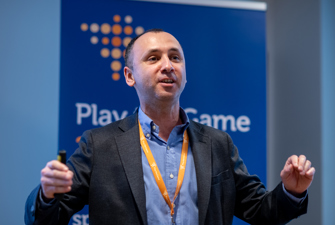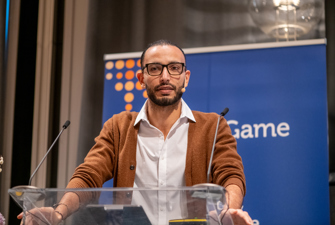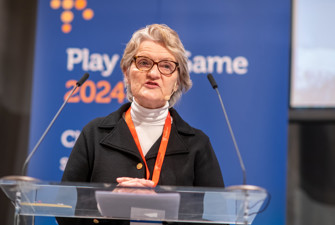The global sport industry is out of touch, this is how we put athletes back in the game
OPINION: Historic rulings confirm that the business of sport must play by the same rules as other commercial sectors and that athletes belong at the bargaining table. Now what?
Opinions on playthegame.org reflect the views of the author(s).
Major myths in sport governance that have disempowered athletes for too long are losing their backing from key judicial bodies.
A windfall of recent decisions in regional courts and national tribunals from Europe to New Zealand to the U.S. have again found that the rules of sport are unfair and anticompetitive, especially for athletes.
In December 2023, the EU Court of Justice released long-awaited judgements in the 'European Super League, ISU & Royal Antwerp,' which followed on the heels of the European Court of Human Rights’ July 2023 judgement in 'Semenya v Switzerland'.
In January 2024, New Zealand's Employment Relations Authority determined that the government sports agency High Performance Sport NZ is obliged to collectively bargain with The Athletes’ Collective, and in February 2024 the U.S. National Labor Relations Board classified Dartmouth Universitys men's basketball players as employees and ordered a union election.
As sport governing body leaders, advocates, player unions and journalists meet this week in Trondheim, Norway, for Play the Game 2024 they find that the landscape of sport's multibillion dollar global industry has forever changed. The precedent set by these recent cases chips away at sport governing bodies' ability to have their cake and eat it too as both regulators and operators of their commercial sector.
But what will the Play the Game community do with this strategic opportunity? And most importantly, will the athletes now truly be front and center in the sport governance reform agenda?
It's not enough to rely on slow-moving litigation to ask the courts to force sport bodies to align with international standards and national laws. If the culture and leadership of sport remain under the spell of the old myths, then the structures and systems that benefit from the status quo will find a way to hang on.
There must be concerted action by a variety of stakeholders to modernize and renew sport's social impact and license, for the good of the game and the people who make it possible.
In 2020, the International Labour Organization (ILO) adopted Points of Consensus for Decent Work in the World of Sport that recognize that athletes are workers too and as such should be afforded the fundamental principles and rights at work. But further agreement is needed to bring this to life.
As ILO Assistant Director-General Manuela Tomei said at the Sporting Chance Forum in Geneva in December 2023:
"This means that workers should be able to organize and their voices be heard, that women athletes should benefit from equality in remuneration, that children should be protected from trafficking under athletic training schemes, and everyone should be entitled to a safe and healthy working environment, including protection against work-related violence and harassment. Rights are not only safeguards for the workers themselves, but also means to strengthen and develop sports."
Similarly, at the UN Office of the High Commissioner for Human Rights, athletes who use their platform to support social and personal causes that they care about have been recognized as human rights defenders. Now words must be backed by actions.
In December 2023, High Commissioner Volker Türk said: “When athletes speak out, they are human rights defenders, and require our support and solidarity.”
Thus, in March 2024, when the Human Rights Council will review and renew its resolution on the mandate of the Special Rapporteur on the situation of human rights defenders, the member states should add specific mention of the essential role athlete activists play as human rights defenders to ensure they are properly recognized and protected with support from the UN system.
Athletes must feel safe to engage in advocacy and they must be defended when they are targeted with reprisals from sports bodies and state actors for their activism.
At the World Players Association – the leading voice of organized players in the governance of world sport – the history of our movement shows that athlete wellbeing and welfare in unionized sports have improved as player associations negotiate better health and safety, shared revenue, inclusive governance, rights-respecting anti-doping systems, access to effective remedy, anti-racism and anti-discrimination programs, and equality and equity.
We articulated these standards in the Universal Declaration of Player Rights underpinning our vision for a world of sport that is collectively bargained.
This summer, just before the opening of the 2024 Paris Olympic Games, the Human Rights Council will review and renew its biannual resolution on sport and human rights. For the sake of all athletes, the member states sponsoring the resolution should amend the title and the content to focus on human rights both in and through sport.
The best way to protect and support athletes is to uphold their fundamental human rights under international standards, to give them an equal say in the decisions that affect their lives and careers, and to make sure they can access the rights and protections connected to their special status as workers and human rights defenders.
And yes, pay them their fair share of the revenue they generate, including and especially in the women's game.
Clearly, 2024 can be a big year for reforms to the sport industry, from the global to the local level, and player associations must be part of the solutions to these out-of-date models. Workers everywhere are finding their footing and their voice, and public support for unions is on the rise across sectors. Why should the same not be true for sport?
At Play the Game, Matthew Graham and Ginous Alford shared player union perspectives in sessions on, respectively, athlete representation and anti-doping rules and human rights.
Watch a video about the work of the World Players Association







